The result of Taiwan’s presidential and legislative elections in 2024 sent a mixed message to international observers. The ruling Democratic Progressive Party (DPP) won the presidential race with 40% of the votes, while opposition parties held the legislative majority through their de facto coalition. Shelley Rigger argued that the elections had no true winners and losers, and Richard Bush noted that Taiwanese politics are more fragmented than at any time since 2008. Meanwhile, Beijing interpreted the election results to mean that the anti-unification DPP had lost its mandate from Taiwan’s mainstream public opinion.
Chinese interference, a recurring factor since Taiwan’s first presidential election in 1996, was critical in this year’s elections. Beijing’s influence attempts became more overt in 2022 when Xi Jinping issued a directive on united front work to “strengthen the patriotic united forces in Taiwan” and “oppose the separatist acts of Taiwan independence forces.”
Taiwanese saw the results of this in 2024: China’s interference became more dangerous as it evolved to be more subtle and untraceable. The Chinese Communist Party’s (CCP) propaganda campaign in Taiwan may have undergone a paradigm shift, as it evolved from a centralized and top-down approach to a more decentralized one. Wang Huning, the CCP’s ideology tsar and the mastermind behind China’s united front work in Taiwan, reportedly instructed a more decentralized and less traceable approach to interfering in Taiwan’s elections, according to a source from Taiwan’s national security sector.
The Taiwan Information Environment Research Center (IORG), a civil society organization, also observed a trend toward the decentralization of Chinese propaganda in Taiwan. Previously, CCP state media assisted or initiated information manipulation campaigns in 2022. However, during this year’s elections, they amplified narratives from Taiwanese opinion leaders that aligned with CCP propaganda narratives rather than directly initiating the propaganda themselves.
Taiwanese numbness and unawareness of Chinese election interference
During this year’s elections, Taiwanese public discourse shifted from foreign affairs issues like cross-Strait relations to domestic issues like economic development or political struggles. The IORG report indicates that the alleged illegitimate son and rumored corruption cases of William Lai, Taiwan’s then-vice president and DPP presidential candidate, were two out of the top five rumors most checked on Taiwan’s fact-check platform Cofacts 10 days before the elections.
These phenomena can be commonplace in other democracies, but the Heritage Foundation’s Michael Cunningham expressed concern that Taiwan’s elections are still fought more over “personality” than “policy,” as the country faces various domestic and external challenges. Gunter Schubert of the University of Tübingen argues that it is “perilous” for Taiwanese politicians to adopt a clear policy stance.
Another perspective on the collective lethargy for serious policy discussion in Taiwan’s public discourse may be attributable to China’s evolving interference. The refinement of China’s election interference purportedly aimed to minimize Taiwanese pushback and awareness of CCP propaganda. Consequently, Taiwanese voters may become increasingly “numb” and “unaware” of Chinese interference.
Before the elections, the Washington Post outlined Beijing’s interference tactics, which can be categorized into “hard” and “soft” interference. “Hard” interference involves hard power tactics like gray zone military intimidation or economic coercion, while “soft” interference includes strategies like united front work or disinformation campaigns to “win the hearts and minds” in Taiwan.
Taiwanese voters may show numbness to hard interference, as Beijing has routinized its aggressive actions. These include daily military incursions into Taiwan’s airspace and waters, economic sanctions on agricultural products and tourism, and suffocating Taiwan’s diplomatic space. These salami-slicing tactics not only create a new fait accompli to assert Beijing’s territorial claim to Taiwan, but also mimic the Russian playbook for Ukraine, intimidating and desensitizing Taiwanese simultaneously.
The sense of unawareness could stem from soft interference through subtle and untraceable activities like united front work and propaganda campaigns. Previously, Chinese united front work targeted prominent pro-Beijing Taiwanese politicians, but now it focuses more on local community and religious leaders by funding group tours in China. Individuals or groups in Taiwan may receive Chinese funding for election campaigns or to produce fake election polls.
Before the election, Chinese propaganda aimed to portray the DPP as “war-making” and “warmongering.” Both Chinese officials and Taiwanese politicians used buzzwords like “the election was a choice between peace and war” and suggested potential crises the DPP could cause. Meanwhile, the DPP’s slogan, “Resist China and protect Taiwan,” was criticized as cliché or fear-mongering, and the concept of “cognitive warfare” was mocked as a label the DPP uses to discredit anything related to China or information unfavorable to the DPP.
There was also a parallel contradiction in the “U.S. skepticism” narrative, suggesting that the United States would not defend Taiwan. A variation of this narrative included an assertion that the United States has a “plan to destroy” Taiwan—which twisted the remarks of former U.S. National Security Advisor Robert O’Brien, who suggested the United States would destroy TSMC rather than “let those factories fall into Chinese hands.” Likewise, Lai’s warning against doubting the United States’ intentions was dismissed due to his faith in the “questionable” U.S. commitment to Taiwan’s defense, especially in light of the United States’ hesitancy to send troops to defend Ukraine. These narratives aim to demonize the United States and delegitimize the DPP’s pro-U.S. policy, alleging collusion to sell out Taiwan. Such narratives resonate more with supporters of the Kuomintang (KMT) and Taiwan People’s Party (TPP), two major opposition parties in Taiwan, who believe the DPP’s pro-U.S. stance provokes China, according to an IORG survey in October 2023.
The impact of Chinese interference on social media
During the elections, Chinese cognitive warfare posed a significant threat through Chinese-associated social media platforms like TikTok. The ruling DPP struggled to effectively communicate with the public, particularly young voters, due to their heavy use of TikTok, which the DPP avoids due to national security concerns. As Chinese media circulated rumors about electoral fraud in Taiwan, IORG found that TikTok had more high-view videos on electoral fraud than YouTube.
There is strong evidence that Chinese election interference may have a greater impact on Taiwanese TikTok users, who exhibit distinct political views compared to users of other platforms. According to IORG surveys conducted in February and October 2023, TikTok users tend to believe pro-China narratives that oppose pro-U.S. policies and support closer cross-Strait ties. Also, TikTok users with independent and pro-KMT leanings hold more favorable views toward China.
Government countermeasures
Over the years, the Taiwanese government has established a legal framework against election interference by external forces. In 2019, Taiwan enacted the Anti-Infiltration Act to “prevent the infiltration and intervention of foreign hostile forces,” particularly during elections. Before this year’s election, Taiwan’s Department of Justice reported 77 cases of alleged election interference, with 157 individuals under investigation. Interference methods included funding tours of Chinese cities, colluding with Taiwanese influencers to spread Chinese propaganda, disseminating disinformation on news or social media, manipulating survey results, and using artificial intelligence to fabricate materials to smear candidates.
Recognizing the threat disinformation poses to Taiwan’s democracy, the Taiwanese government began collaborating with social media companies like Meta in 2019 to monitor and counteract disinformation on their platforms. In 2024, this collaboration includes Meta, Google, LINE, X (formerly Twitter), and purportedly TikTok.
The role of civil society
In addition to government efforts, public-private synergy was key in thwarting actors collaborating with authoritarians to sow division during Taiwan’s elections —a serious challenge highlighted by then-Minister of Digital Affairs Audrey Tang. Civil society in Taiwan plays three crucial roles in combating election interference. First, it alleviates public concern about government overreach into civil rights like free speech. For instance, the proposed Digital Intermediary Services Act in 2022 was aborted due to concerns it would grant the government excessive power to determine the validity of information. Civil society can thus step in to provide services like fact-checking or public education, addressing these concerns.
Secondly, public-private synergy can enhance the speed and innovation in combating disinformation. Before the elections, the Taiwanese government formed a rapid response task force to debunk disinformation within four hours after the information was spotted. Meanwhile, civil society provides services like fact-checking and data analysis and develops new tools to address new forms of disinformation.
Finally, civil society can help enhance media literacy. As the public sector issues authoritative statements to clarify disinformation, civil society also plays a crucial role in tackling it. Taiwan’s civil society provides tools such as reports, workshops, fact-check applications, and grassroots outreach in schools or local communities, as noted by the U.S. Secretary of State Antony Blinken.
In sum, Chinese election interference in Taiwan has become more sophisticated and dangerous. Taiwan’s countermeasures, including government action and civil society efforts, offer a robust defense model.
The Brookings Institution is committed to quality, independence, and impact.
We are supported by a diverse array of funders. In line with our values and policies, each Brookings publication represents the sole views of its author(s).

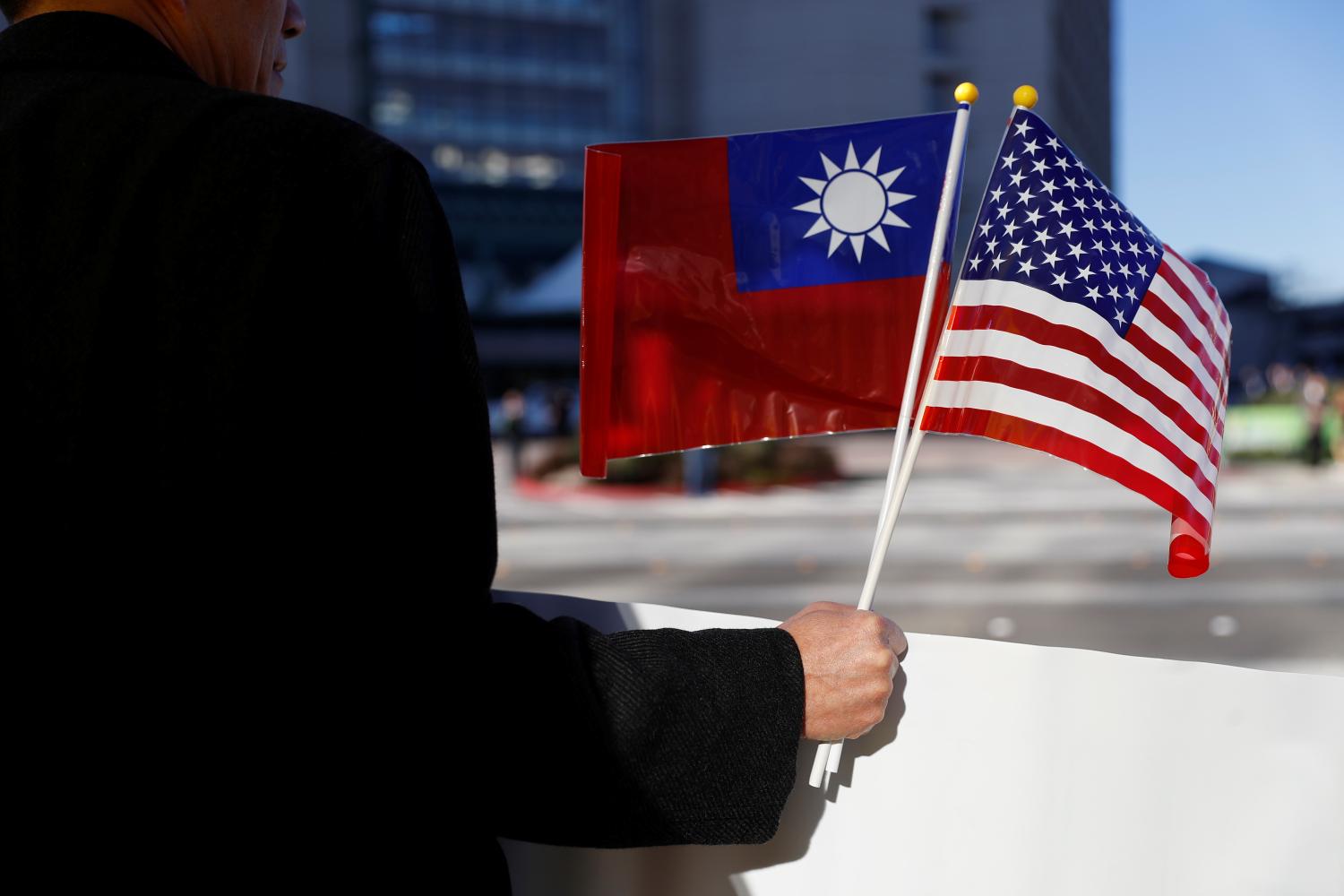


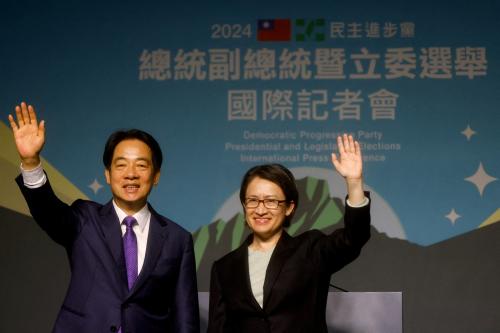
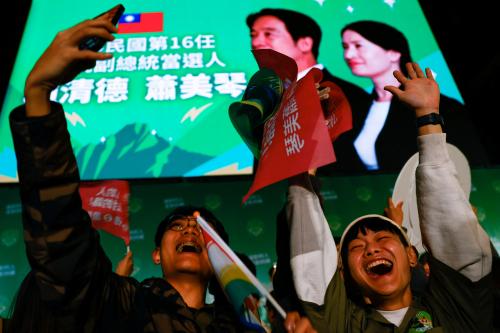

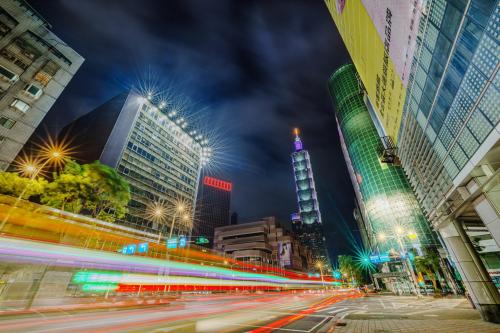
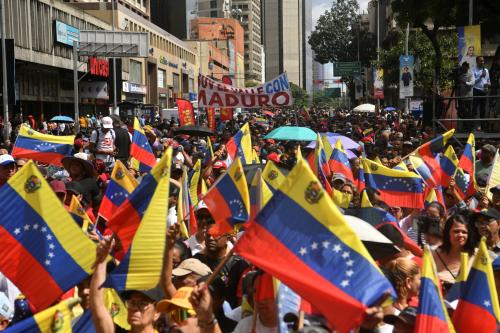
Commentary
What lessons can Taiwan share with the world on election interference?
June 11, 2024